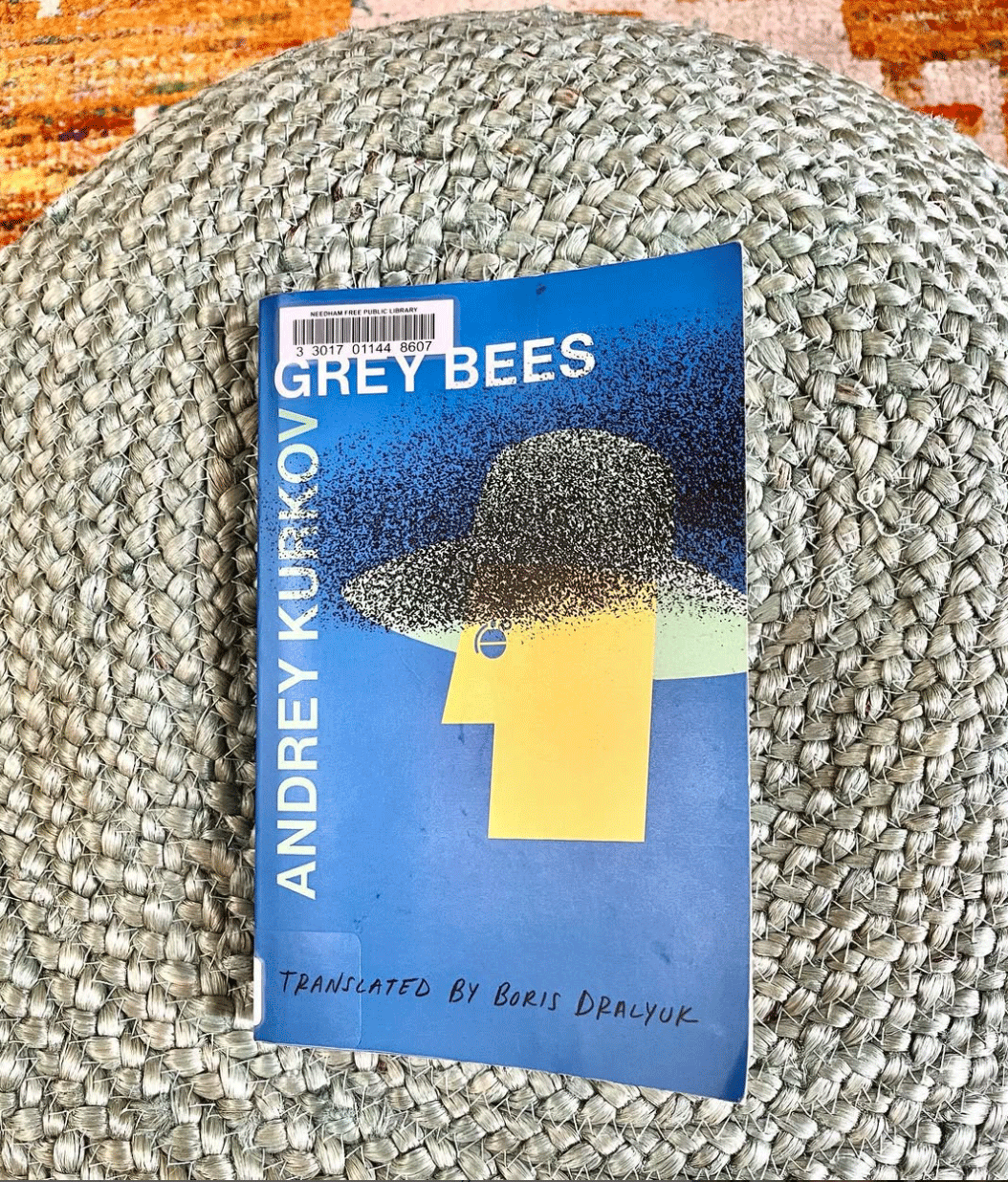Grey Bees
I first learned about Grey Bees by the Ukranian writer Andrey Kurkov back in June. (You can check out my post from June 27, which was inspired by an interview with Kurkov, in which he said, “They think you cannot mix culture and politics. I said, maybe *you* cannot. I can!”)
Sergey Sergeyich lives in Ukraine’s Grey Zone, where he is without electricity, dependable food sources, and, well, company. The only other resident of this “village” (which is literally a no man’s land between loyalists and separatists) is his “frenemy” Paskha. Yet Sergey is a beekeeper, and lucky for him, his bees provide both an emotional and physical healing source.
It’s the bees that propel Sergey on an “adventure.” And when I say “adventure,” I mean tenuous journey through numerous checkpoints — to Russia and back — fraught with danger. I realize that the way I wrote it sounds a bit fairy-tale-esque. (“Fraught with danger!”) That’s because Kurkov veils a wrenching subject with little snips of sweetness as he goes along. What happens when we don’t have a home (literally)? What happens when our home country falls to pieces? What happens when you lose your passport or it’s confiscated for no reason? These things are not funny in the slightest, but maybe people would think about these circumstances more pointedly if they’re reading Grey Bees and charmed along the way.
“The air will be filled with a sweet and pleasing, close and peaceful buzzing — a buzzing that makes every bee-lover’s world feel smaller, cosier, more homelike. And then the distant shots and explosions will not seem so important; after all, a person can get used to anything. The important thing will be spring, and the fact that nature is filling up with life — with its sounds and its smells, its wings and winglets.”
PS: In a random “bookish coincidence,” the translator of Grey Bees — Boris Drayluk — is the partner of Jennifer Croft, author of Homesick, which I loved and posted about here.
originally published on instagram

